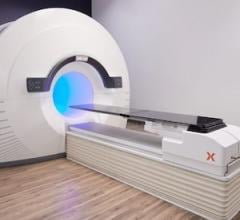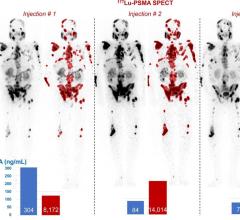August 3, 2010 — New cancer-specific imaging compounds may help enhance the imaging capabilities of positron emission tomography (PET) or single photon emission computed tomography (SPECT).
GenSpera’s technology platform combines a potent, plant-derived cytotoxin (thapsigargin) with a prodrug delivery system that releases the drug only within the tumor. Unlike standard cancer drugs, thapsigargin kills cells independent of their division rate, making it effective at killing all fast- and slow-growing cancers and cancer stem cells. GenSpera’s pro-drug platform is the subject of seven issued patents with four additional patents pending.
GenSpera Inc. said today it acquired a patent application for new medical imaging technology from the Johns Hopkins University and the University of Copenhagen. This technology will be coupled with the company’s patented tumor-targeted peptides, which incorporates derivatives of thapsigargin.
“These thapsigargin derivatives are a natural extension of our work with G-202 and G-115, the lead cancer drugs in GenSpera’s pipeline,” said Dr. Soren Brogger Christensen, professor of pharmacognosy at the University of Copenhagen and co-inventor of the technology. “I am delighted that GenSpera has acquired this application as they have the vision, know-how and determination to bring these important potential medical applications to realization.”
In early 2010, GenSpera initiated a phase I clinical trial targeting solid tumor cancers with its lead drug, G-202, at Johns Hopkins University and the University of Wisconsin. The company anticipates completion of phase I trials in the second quarter of 2011.
Upon successful completion of its phase I trial, GenSpera expects to initiate multiple phase II trials for G-202 in several different types of cancer. The company’s second drug, G-115, will directly target prostate cancer. The company anticipates filing an application to commence phase I trials of G-115 in third quarter of 2011.
For more information: www.genspera.com


 February 13, 2026
February 13, 2026 









